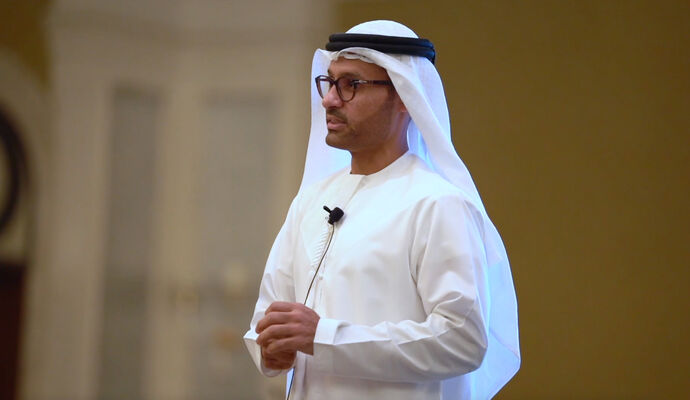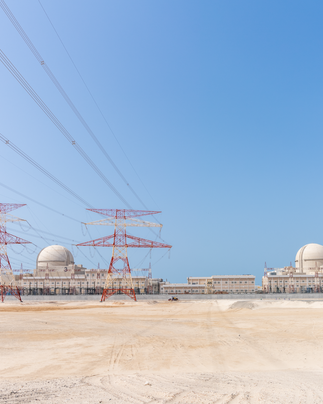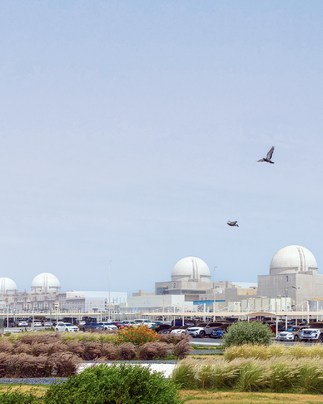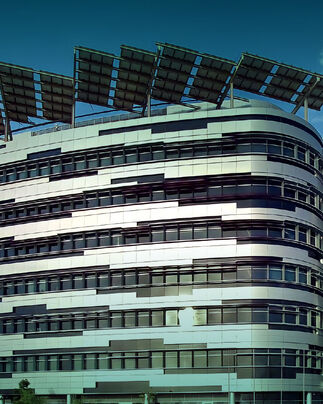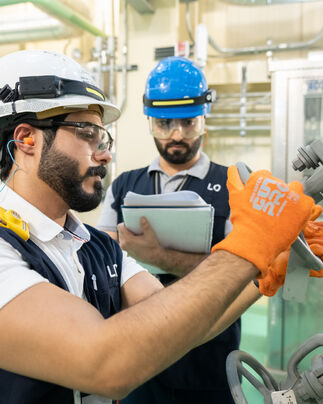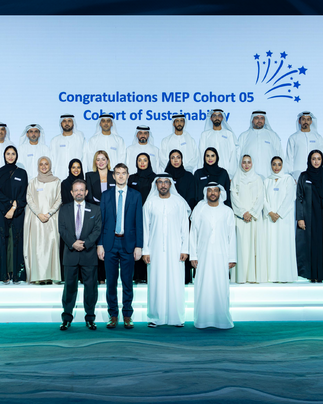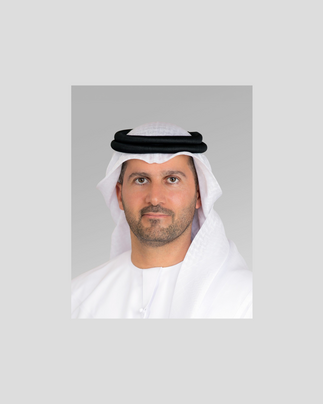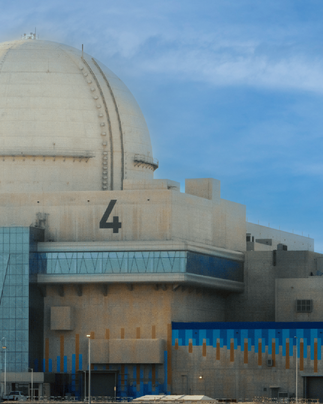The Emirates Nuclear Energy Corporation (ENEC) and the UAE Cyber Security Council hosted the first edition of the CyberEnergy Leadership Forum (CELF) in Abu Dhabi, UAE, with participation from key energy industry and cyber security stakeholders nationally and internationally. The forum, organized by ENEC, brought together more than 117 experts representing a diverse range of government, semi-government and trusted private sector stakeholders to discuss best practices and approaches used to enhance the cyber resilience of the energy sector in the UAE and globally.
The one-day forum featured a leadership briefing, followed by a technical forum hosted by ENEC and the UAE’s Cyber Security Council, United States Department of Energy, and engaging discussions on key cyber challenges facing the world with high-level attendees including H.E. Dr. Mohamed Al-Kuwaiti, Head of Cyber Security, UAE Government was in attendance and gave opening remarks. His Excellency Mohamed Ibrahim Al Hammadi, Managing Director and Chief Executive Officer of ENEC, welcomed the leaders and attendants and led the discussions of the forum, which showcased the UAE’s position as a world leader in innovation and best-in-class technology implementation with key areas covered including cyber event response, organization-specific initiatives, updates on the UAE cyber security strategy and cyber security assessments.
ENEC, a leading entity that is spearheading cyber security in the UAE’s clean energy sector, upholds the highest international standards for the safe and secure operation of the Barakah Nuclear Energy Plant to ensure abundant volumes of clean electricity are generated 24/7 for the Nation. The Barakah Plant uses one of the most modern and advanced nuclear technologies and is the first fully digitalized nuclear energy plant in the world. As a result, ENEC has taken a 360 degree approach, utilizing one of the most advanced cyber systems that is continuously enhanced to remain ahead of the curve in responding to the evolving cybersecurity environment.
The forum falls in line with ENEC’s support of, and alignment with, the UAE’s National Cyber Security Strategy[1], through engaging with local and international stakeholders to enhance resilience and set new standards of excellence. The nuclear energy industry has some of the most stringent cyber quality, technical and risk management standards in the world and ENEC has been recognized as a global benchmark for new nuclear projects around the globe in terms of safety, security and nuclear project delivery, now adding cybersecurity leadership to its organization expertise.
His Excellency Dr Mohamed Al Kuwaiti, Head of Cyber Security, UAE Government, said: “The cybersecurity threat landscape has evolved rapidly over the years, as the world becomes increasingly digitalized – resulting from a greater overlap between IT and Operational Technology (OT). The UAE is driving forward with the new National Cybersecurity Strategy, and we commend ENEC’s CyberEnergy Leadership Forum for creating a strong basis for engaging key government and industrial stakeholders to establish a safe and secure energy sector that will see us building a trusted hub as we herald the new digital era. We welcome the opportunity to create partnerships, sharing knowledge and experience with trusted international stakeholders to support our efforts in driving cybersecurity in the UAE and internationally.”
His Excellency Mohamed Ibrahim Al Hammadi, Managing Director and Chief Executive Officer of ENEC, said: “Cybersecurity is a critical focus area in the digital era and today’s Forum has showcased how important it is to continuously evolve cyber strategies that maximize the benefits of advanced technology whilst maintaining safety and security. We work closely with government and private stakeholders, sharing best practices, to further advance the intellectual wealth of the UAE and the wider industry, ensuring we remain well-equipped to mitigate any potential cyber challenges.”
Mr Robert M. Lee, CEO and Co-Founder of Dragos, commented: "The Cybersecurity Energy Leadership Forum represents the essential collaboration that ENEC is driving to support the UAE’s National Cyber Security Strategy. Cybersecurity for industrial control systems (ICS) and operational technology (OT) is more critical than ever in our hyperconnected world, and I am honored to work with the UAE industrial community to protect people and make the industrial community safer from cyber threats while the country’s innovators also pursue digital transformation."
Throughout the past 10 years, ENEC has committed to upholding its UAE nuclear policy commitments to the highest standards of nuclear safety, quality, transparency and non-proliferation. As a result, the Barakah Plant has received international recognition following robust assessments from the International Atomic Energy Agency (IAEA), and the World Association of Nuclear Operators (WANO), and this commitment will remain throughout the lifetime of the UAE Peaceful Nuclear Energy Program.
Both Units 1 and 2 of the Barakah Plant are commercially operating with Unit 3 set to join them in the coming months. When it begins to operate at full power, it will add a further 1,400 megawatts of zero-carbon emission electricity to the national grid. Unit 4 is in the final stages of commissioning prior to construction completion.
A powerhouse for the nation’s sustainable development, energy security and stability, the Barakah Plant provides significant environmental benefits for the Nation today and for the next 60 years and beyond. When fully operational, the Plant will produce up to 25% of the UAE’s electricity needs and prevent 22.4 million tons of carbon emissions - the leading cause of climate change - every year.
Cyber security for the Barakah Nuclear Energy Plant is regulated by the Federal Authority for Nuclear Regulation (FANR) which is responsible for reviewing and overseeing physical protection for nuclear materials and facilities. ENEC’s cyber security systems comply with the highest international standards set by the UAE’s National Electronic Security Authority (NESA).


